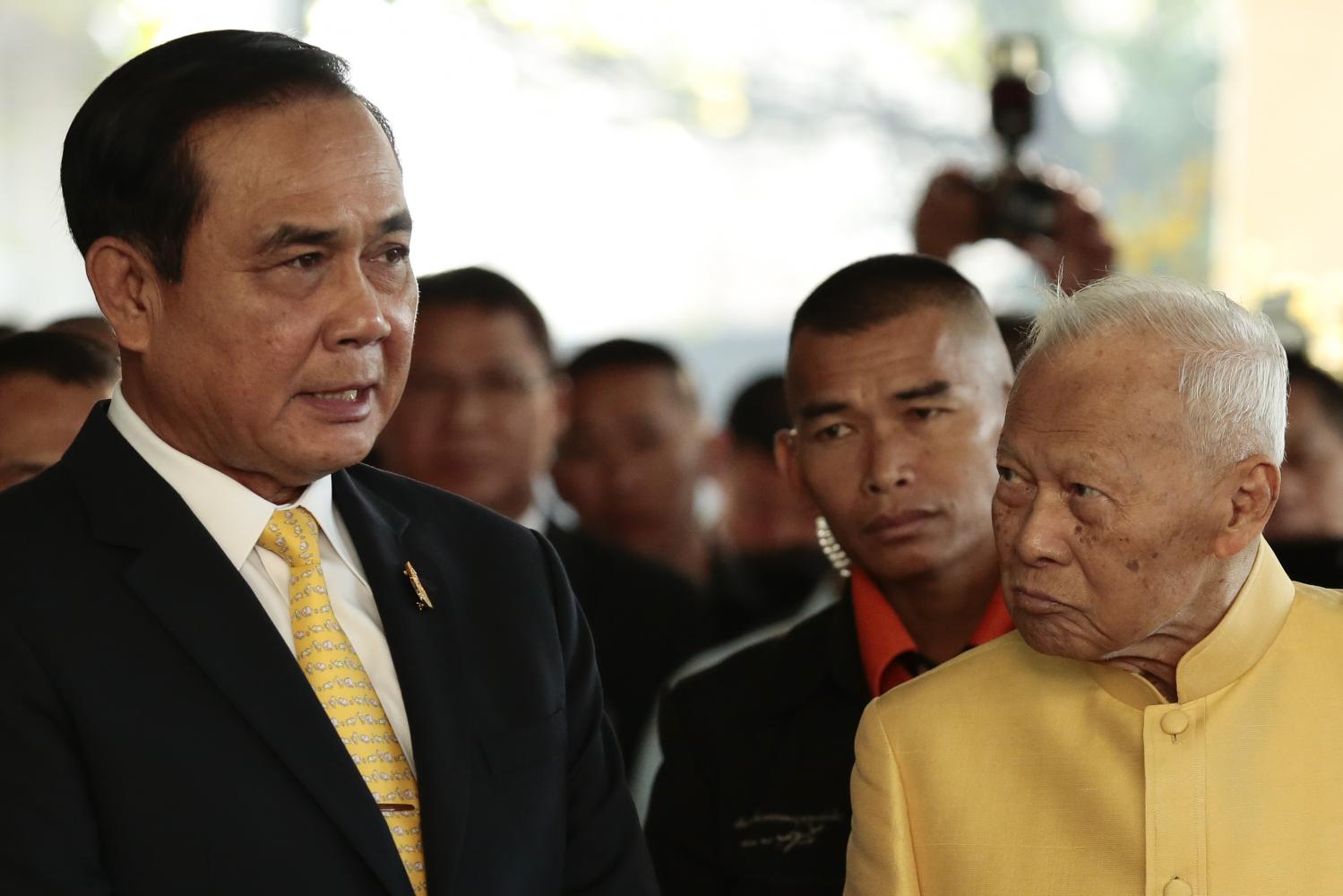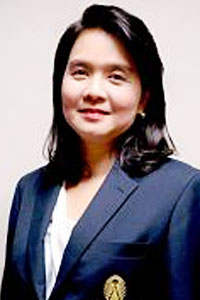
Thais are more politically divided than ever before and the rising animosity between the opposing camps may have reached a critical level, particularly in the online sphere.
But what is really driving this political polarisation and rising extremism? Is our social division beyond bridging?
In the aftermath of the March general election, hate speech, fake news and even bullying have been rampant particularly in the online echo chamber of social media where people communicate in a seemingly closed space of like-minded individuals, reinforcing and amplifying each other's beliefs and biases and in effect condemning differing views and ideas to oblivion.
More recently, following the passing of Gen Prem Tinsulanonda, former regent, prime minister and twice chairman of the Privy Council, there have been unbecoming remarks about the late statesman from those who despise the military regime and its conservative counterparts. This group is generally understood to be liberals.
Amidst national mourning and widespread praise for Gen Prem in traditional mass media and online pages of conservative and moderate netizens for his life achievements and public contributions, denigration also abounded.
Questions were raised about his role in past undemocratic regimes, his prolonged stay in public properties (his Si Sao Thewes residence), his sizeable life savings (which were posthumously donated for charity) and his support of the National Council for Peace and Order (NCPO), among others.
There were also a more extreme few who rejoiced at the unfortunate news of the statesman's passing. Another pillar of the dictatorship has crumbled, some said.
Of course, conservatives and even moderates were flabbergasted by such expressions. They not only found it improper but distasteful to criticise the dead, especially a venerable public figure such as Gen Prem.
Some blamed too much freedom of expression while others resorted to unseemly criticisms with even harsher comments. A few even resorted to hate speech to dehumanise critics of the late general.
"Even brute animals have a better conscience than these people," was a comment from one of my editor friends from a local newspaper on Facebook. This person said he disliked one-general-turned politician in the current cabinet for a number of reasons. But if this general passed, he would "in the spirit of mourning, and with human decency, not portray this general in a bad light".
But a graduate student who is a digital native and a liberal sees it differently. She feels mourning is a personal choice and that in a democratic society one can definitely discuss a politician or public figure in disapproving terms, even on the day of their death.
"If a politician leaves a legacy that hinders democracy, I do not see why it is bad to speak this truth, especially now when justice is lopsided and fairness is robbed from the system," she said.
The above comment is quite telling of the emotional context of politics that preceded Gen Prem's passing. Many liberals were angry, very angry, about a number of things that took place in recent weeks -- the unveiling of the NCPO-appointed Senate, the attempt to postpone the House Speaker vote, the Constitutional Court's suspension of Future Forward Party leader Thanathorn Juangroongruangkit as an MP among others.
In other words, the passing of someone of such political stature as Gen Prem cannot be seen separately from these political developments, which to one side of the divide, seem unfair and unjustified. And this inevitably shaped their temperament and frame of mind upon hearing the news.
In many ways, the ongoing political divide is also underlined by a moral divide between the two political poles. While conservatives tend to endorse values like patriotism, loyalty, respect for authority and social stability, liberals emphasise different values like equality, fairness, freedom and openness. The moderates, who seem to be experiencing a shrinking public space with the deepening divide, have a mix of the two.
The online aftermath of Gen Prem's passing aside, the political conflict that has evolved in Thai society reflects consistent clashes between these sets of values. This, together with the digital ecosystem in which liberals and conservatives tend to self-segregate into ideological silos -- exposing themselves to different news and information and socialising only with like-minded individuals, is driving more animosity and forging more negative views about those across the political divide. Even among families and friends, the deep-seated political divide has led to many irreparable rifts.
When political polarisation is associated with moral polarisation, there is no easy way to address this since people's moral values are their deeply held beliefs which shape their sense of right and wrong.
Many studies suggest strategies to improve dialogue, understanding and relationships across social and political divides in a bid to create empathy and respect. With the stakes so high, this will have to be a generation-long social project requiring mutual responsibility of all sectors.
But with the ongoing bargaining and dealing to form a new coalition government among politicians high on the public's agenda, this long-overdue project will likely be put on the back burner again and again.
Professor Pirongrong Ramasoota teaches and researches on media, communication and society at the Faculty of Communication Arts, Chulalongkorn University.
